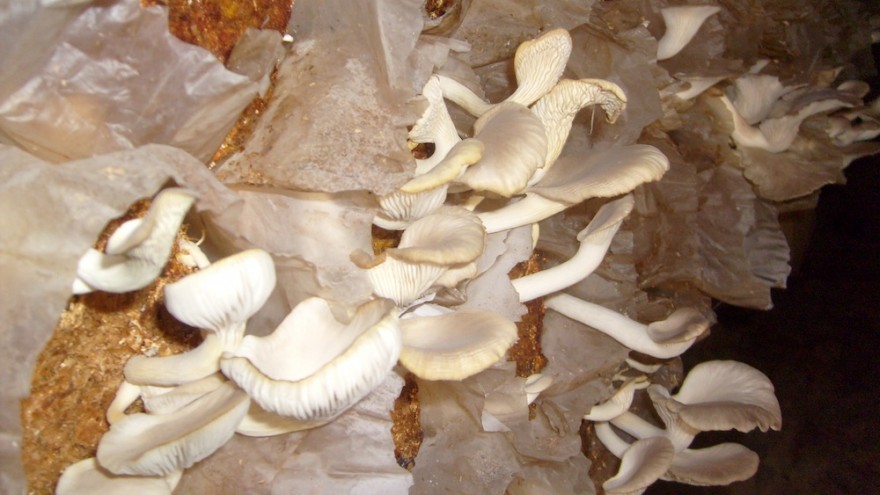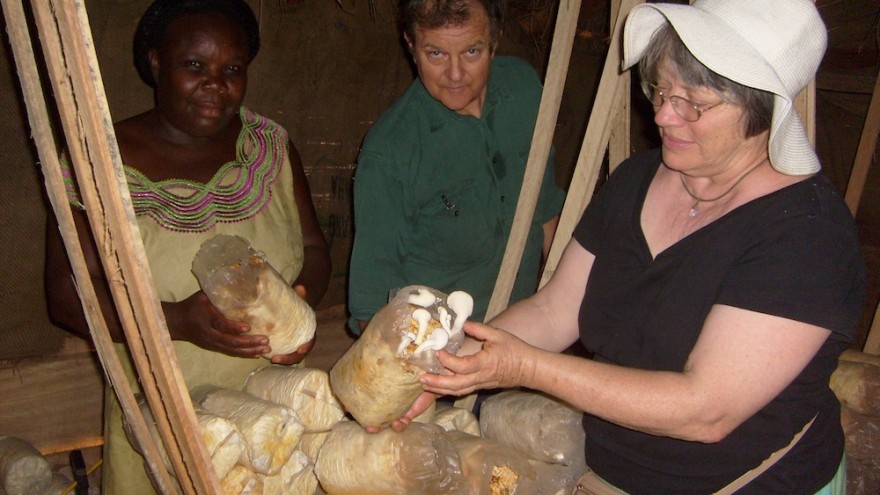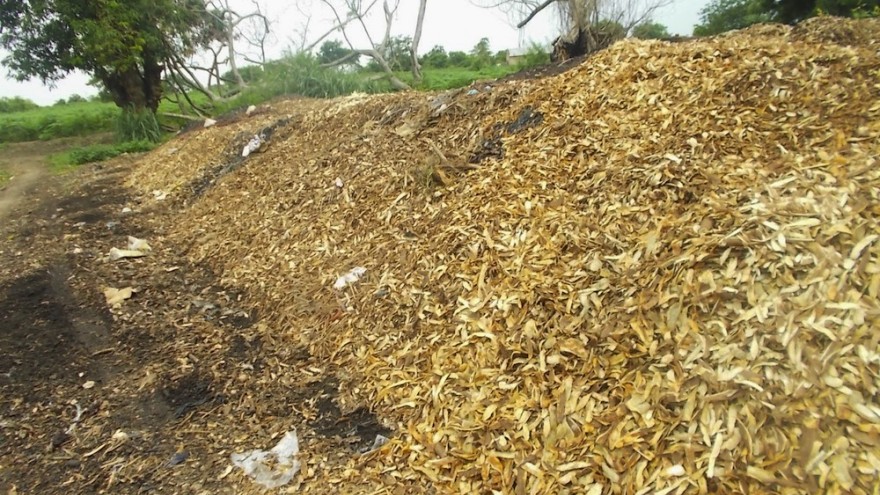In Ghana a new agricultural business is burgeoning. Local farmers and factories are using food waste to grow mushrooms through a clever cultivation process. This thriving production is not only a positive for economic development in the country but it also helps reduce protein malnutrition in locals, one of the top ten causes of death in Ghana.
The farming of the mushrooms is simple. Tons of leftover cassava peelings – a staple root vegetable in Ghanaian cooking – is ground, mixed with sawdust and dried. This compost is then tightly packed into plastic bags and injected with mushroom spawn. Five days later, the bags start sprouting crops. The whole fermentation process is completely natural and an environmentally friendly means of repurposing something that would have otherwise gone to waste.
There are two prominent players in Ghana’s mushrooming industry. Food processing company St. Baasa was established in 2010 and is currently in the process of upping its production from five to 20 tons of mushrooms per month. The mushroom farming in the factory has received European backing and the production has increased the company’s income by 15 per cent. According to the factory’s general director, there are plans to start training local farmers with the hope of increasing their household incomes.
Contrary to recent reports, mushroom farming is not completely new to Ghana. It turns out that in 1996 an enterprising youth named Bernard Bempah started BemCom – a centre that offers locals training in oyster-mushroom farming to help create additional income for farming families. In 2008 Bempah together with Oklahoma-based, shitake mushroom growers Doug and Dr. Sandra Williams, started the Mushrooms in Ghana Project with the aim of developing a spawn lab to advance the production of mushroom spawn in the country. In the lab they also plan to produce spawn for the production of shitake mushrooms that have a significantly greater shelf life than oyster mushrooms, which Ghanaians with no access to electricity have difficulty preserving.









